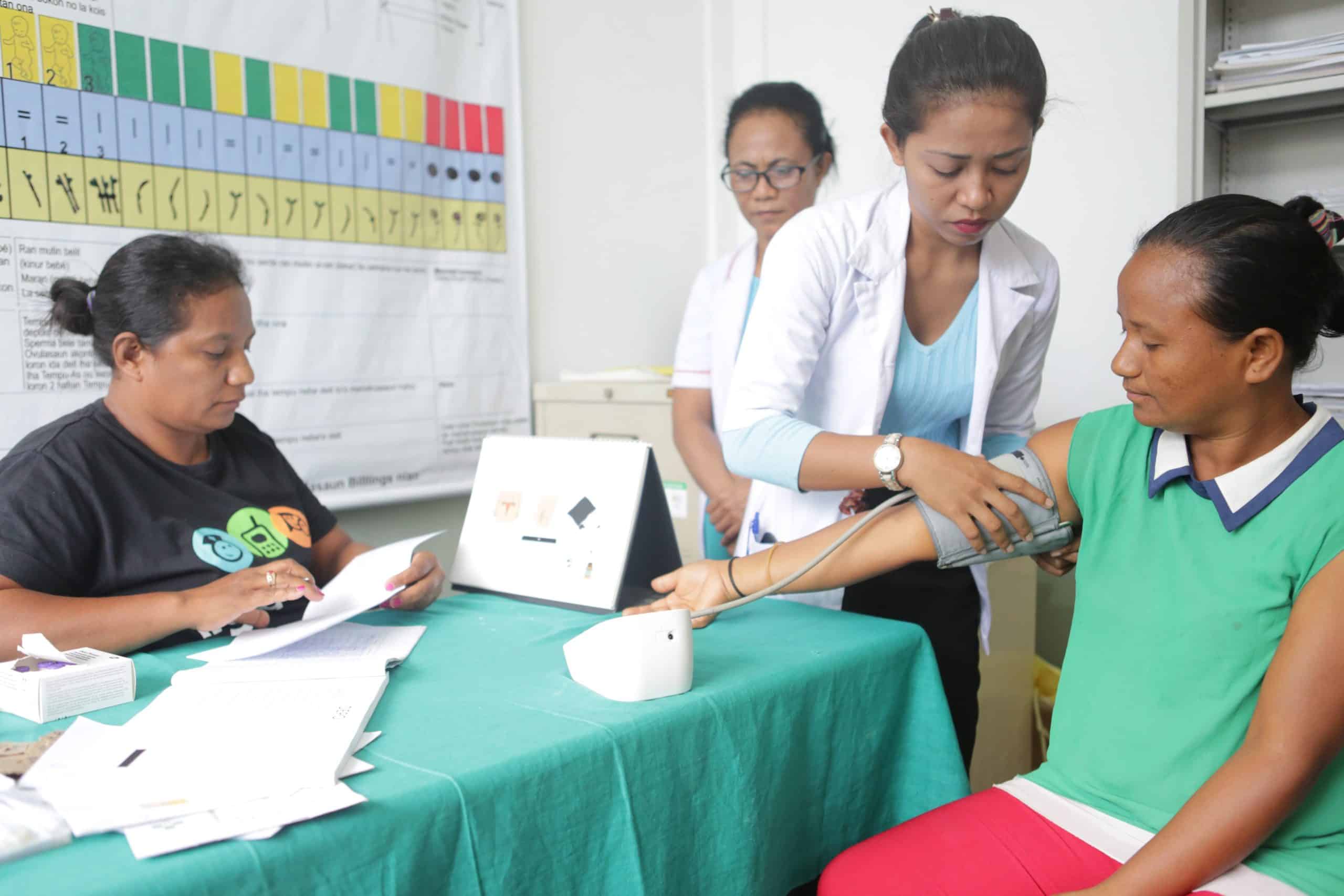In Timor-Leste, Women Win When Government Invests in Training Health Workers
March 9th, 2020 | story
Ana Maria Bianco has been working as a midwife at Zumalai Health Center for more than 20 years. Since 2016, USAID’s Reinforce Project, through the National Institute of Health, has provided her with intensive clinical and training skills so that she can provide better care and help other midwives do the same. The project is implemented by JSI.
Now a clinical trainer certified by the National Institute of Health, Ana Maria recently facilitated a family planning training for Covalima municipality health workers.
This training was very needed; in Zumalai, for example, we are only three trained midwives, so sometimes we are not able to provide or must re-schedule services, which always presents some risk [of not meeting pregnant women’s critical needs],” explains Ana Maria.
A few weeks after facilitating a training, Ana Maria visits the health centers to see if her trainees are applying the skills she taught them and that they are doing so correctly, which is essential for certification.
At Zumalai Health Center, Ana Maria observes Juliana, a nurse, counseling a mother who has been using contraceptive injections for several months. After Juliana tells her about the advantages of various methods, the mother decides to switch to an implant. Juliana is certain that the Reinforce-sponsored training has helped her counsel clients more effectively and has improved her professional relationship with her colleague, Diana, a midwife to whom she refers clients. Diana was intensively coached during the training and now inserts implants with complete confidence.

In another room, Sonia, a nurse, uses a flipchart to counsel Dominica, a 27-year old mother who had a baby the month before. Dominica chooses an implant, but after checking her eligibility, midwife Juvita, who is a midwife, prescribes her a three-month injection instead. Juvita is delighted that she now has the capacity to advise women on the contraceptive method that is best suited to their needs at particular times of their lives.
At Tilomar Health Center, Juliana, a mother of seven whose youngest was born recently, is in consultation with Carlos, a nurse who recommends that Juliana get an implant, advice that she takes. Carlos is proud of his newfound confidence in talking about reproductive health. “Before I was trained, I used to leave this topic to my female colleagues, but now I even have the trust of mothers in the community.” He refers Juliana to Mariana, a midwife who has prepared all the materials and instruments for inserting the implant. After the procedure—closely observed and assessed by Julieta da Costa, another family planning trainer from the National Institute of Health—Mariana gives final instructions to Juliana and sends her home.
At Sanfuk Health Post, Celeste and Ercia collaborate like their colleagues at Zumalai and Tilomar: the nurse provides initial counseling, and the midwife takes care of the clinical procedures for long-acting methods. Celeste and Ercia’s client, a mother of three with a two-month old baby, used to have an implant, removed it to become pregnant, and wants a new one so that she can avoid pregnancy until (and if) she wishes to have another child.
On this particular day, Ana Maria observed two midwives and two nurses inserting implants correctly and listened as trained nurses counseled mothers seeking family planning advice. Ana Maria sees her municipal trainer role as crucial to improve the quality of health services. “We observe and coach the trainees as intensively as necessary. They acquire skills by practicing first on mannequins, and when they are ready, perform them on real clients.” Ana Maria insists on client’s rights, too, stating that “when a mother comes for any reproductive health consultation, she deserves comprehensive counseling to ensure she is fully aware of all the services she can receive.” Ana Maria acknowledges that was not a priority in the past, but continuous training and follow-up after training has changed this. She hopes that the Ministry of Health will continue USAID’s Reinforce efforts in Covalima and replicate it in other municipalities. This is an important investment for the future, she says.
There are many new graduates who need to be continuously learning and maintain their skills and competencies for the benefit of the community.”
We strive to build lasting relationships to produce better health outcomes for all.